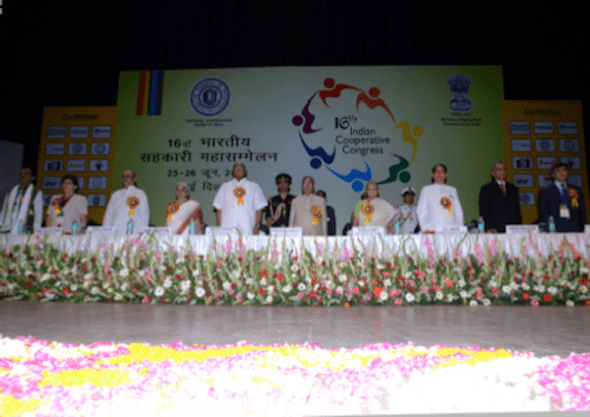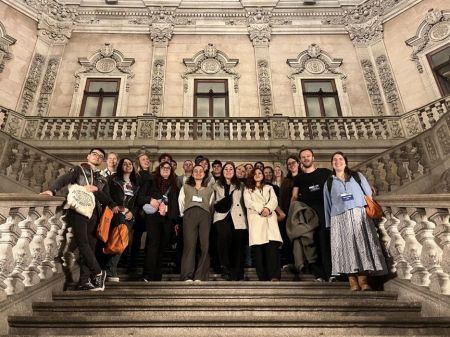We are pleased to share news of a new book relevant to…
Indian President praises co-ops at the country's National Co-operative Congress

More than 2,000 delegates celebrated the role of co-operatives in India at the country’s 16th Co-operative Congress.
The President of India, Shri Pranab Mukherjee, was a special guest at the event who highlighted the importance of co-operation as a philosophy of life. During his opening address, the President emphasised the contribution of co-operatives as promoters of democratic governance, particularly in rural areas. He also said co-operatives have proven their resilience during the financial crisis.
The June event featured keynote presentations from ICA President, Dame Pauline Green; Li Chunsheng, President of ICA-Asia Pacific Regional Board; Shri Sharad Pawar, Union Agriculture Minister; and Sheila Dikshit, Chief Minister of Delhi;
Speaking at the event, President of the National Cooperative Union of India, Chandrapal Singh Yadav, said the co-operative movement in India is one of the largest in the world with 600,000 co-operatives and 260 million members. Mr Yadav also congratulated the Agriculture Minister for passing of historical Constitutional Amendment Bill 2011 in the Parliament. According to him, the new Bill will strengthen co-operative societies.
Dame Pauline said India could develop global co-operative brands and congratulated the President of India for making setting up of co-operatives a fundamental right in India with the 97th Constitutional Amendment.
She also spoke about the five key points that are essential for running a successful co-operative: democratic participation; social media; non-compromise on member rights; training for leaders and members and increasing youth membership.
Governor of Odisha, Shri S.C. Jamir, said co-operatives are an effective instrument for economic development and highlighted the contribution of co-operatives in his state. He said he wanted co-operatives to take an active role in marketing agricultural products.
Sheila Dikshit believed co-operatives have a unique structure that would benefit all types of communities and added that co-ops could help to empower women and young people across the country.
Delegates at the Congress also took part in eight business sessions focused on tax exemptions for co-operatives; co-operative legislation and governance; the credit union sector; the role of co-operatives in food production; co-operative education and training, emerging co-operatives and getting women and youth involved. The best co-operative societies were also awarded prizes at the Congress.
Chandra Pal Singh Yadav, President NCUI said that the two-day Cooperative Congress had come up with useful recommendations to further strengthen the co-operative movement.




